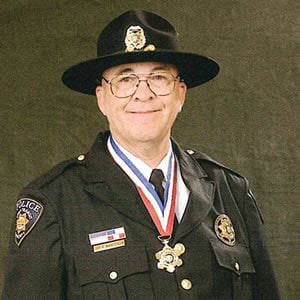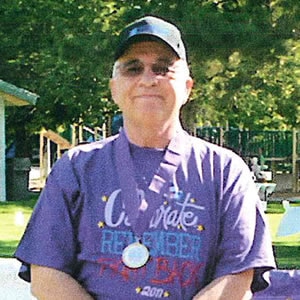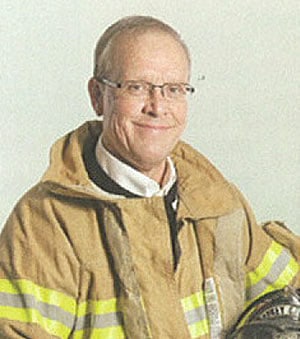by California Casualty | Health |
 For Educators, Peace Officers, Firefighters, and Nurses – people who make our communities better – taking time off work for the flu has more repercussions than it does for your average cubicle dweller. That’s why we wanted to share some tips on telling the difference between a cold and the flu, and how you can protect yourself.
For Educators, Peace Officers, Firefighters, and Nurses – people who make our communities better – taking time off work for the flu has more repercussions than it does for your average cubicle dweller. That’s why we wanted to share some tips on telling the difference between a cold and the flu, and how you can protect yourself.
As this season’s flu outbreak continues to spread, many are wondering if they actually have the flu, and how can they prevent it from spreading. Both the U.S. Centers for Disease Control and Web MD agree sometimes it’s hard to tell what is causing your cough, body aches and fever but here are some things to know:
Both colds and the flu are upper respiratory illnesses. A cold is milder and will ease in a few days. Flu symptoms are much more severe, can last up to 10 days and can result in serious health problems like pneumonia and hospitalization. How can someone differentiate between the two?
COLDS
- Colds usually last a week.
- They normally begin with a sore throat that diminishes in a day or two.
- Fever is very uncommon with colds (except for younger children)
- A cough usually develops by the fourth or fifth days.
FLU
- Symptoms come on strongly and swiftly
- Sore throat
- Fever
- Severe muscle aches and soreness
- Congestion and coughs
- Swine flu also is associated with vomiting and diarrhea
The best ways to prevent the flu is to:
- Get a flu vaccination
- Wash hands frequently
- Avoid others who are sick, and stay home if you are feeling unwell
- Get plenty of sleep and stay hydrated with water, teas and other non-caffeinated drinks
- Ask your physician about antiviral drugs that can blunt flu symptoms if prescribed within the first 48 hours of your first symptoms.
One of the best resources about the flu can be found at www.flu.gov.

by California Casualty | Nominate a Hero |
Voting is now closed!
We are honored to have the opportunity to recognize each of these heroes. In our book, they are all Heroes of the Year!
Be sure to read all our heroes’ stories here.
 Officer Mansfield started his career in law enforcement officer at the age of 25, and now has been serving his community for more than 37 years. Before retiring in 2012, he served with the North Salt Lake Police, Woods Cross Police, Salt Lake County Sheriff’s Office, Adult Probation and Parole, the Midvale City Police, and Utah Transit Authority Police Department.
Officer Mansfield started his career in law enforcement officer at the age of 25, and now has been serving his community for more than 37 years. Before retiring in 2012, he served with the North Salt Lake Police, Woods Cross Police, Salt Lake County Sheriff’s Office, Adult Probation and Parole, the Midvale City Police, and Utah Transit Authority Police Department.
Colleagues and Family say that he is trustworthy, honest, sincere, and has always stood up for those in danger. In one particular case, Officer Mansfield stopped theft of arcade tokens used for boarding transit trains and his investigation led to eight arrests. Officer Mansfield has suffered multiple injuries in the line of duty, including a life-threatening gunshot to the leg.
 He stays busy as a security officer and volunteer Chaplain at the local children’s hospital. He also serves as Chaplain of his local American Legion Post. Officer Mansfield is active in many community activities, also active in several cancer support groups, as he is a cancer survivor himself. He has received many awards, including a Purple Heart and the Medal of Valor for saving a fellow officer’s life.
He stays busy as a security officer and volunteer Chaplain at the local children’s hospital. He also serves as Chaplain of his local American Legion Post. Officer Mansfield is active in many community activities, also active in several cancer support groups, as he is a cancer survivor himself. He has received many awards, including a Purple Heart and the Medal of Valor for saving a fellow officer’s life.
by California Casualty | Firefighters |
With the holidays fast approaching, here are good health reads and tips for firefighters and friends.
Should Firefighters Do Crossfit?
by Dr. Karlie Moore. This article was originally published on www.fitfordutyconsulting.com
Crossfit has become very popular, and many of the firefighters have asked me what I think about it in terms of safety and effectiveness. So here’s my opinion: Crossfit is a great full-body workout and one that I think could be beneficial for firefighters since it is high intensity, it improves all the components of fitness, and it burns a lot of calories. However, I encourage people to use caution when doing Crossfit, or any extremely challenging exercise for that matter, since the potential for injury is obviously increased. Research illustrates that fatigue significantly compromises good technique, so that is concerning when the goal is to perform as many repetitions as possible in a given amount of time.
Crossfit encourages a very large range of motion for most joints in the body. This can be really helpful for some who need to improve their flexibility, but detrimental for others who don’t have (and never will have) the ligamentous support to keep their joints in a safe position when performing these moves. So, when performing this type of exercise, it becomes extremely important to listen to your body and back off if you feel any overuse injuries coming on.
The training to become a Crossfit instructor is not, in my opinion, too rigorous. So although I often hear that Crossfit instructors enforce that their clients start out slow and make sure they are doing things “right,” I wonder to myself “well do they know what right really is?” So make sure your Crossfit instructor has a strong background in strength and conditioning and a real appreciation for injury avoidance. A good site to follow if you want to be sure you’re getting correct information is https://www.mobilitywod.com/. Kelly Starrett, DPT, is a fellow doctor and a proponent of Crossfit.
Ultimately, I’m ecstatic that so many people have found a love of exercise through Crossfit. But I don’t think it’s right for everyone. Ultimately, there is no ONE right way to exercise for everyone; it depends on your body type/build and your strong and weak areas.
Find lots more FREE health tips for firefighters at www.fitfordutyconsulting.com
Author bio:
Dr. Karlie Moore holds a PhD in Exercise Science and Nutrition from Oregon State University. She has dedicated her research and work to helping firefighters improve their health so they can live long, happy lives. Dr. Moore conducts comprehensive fitness assessments for several fire departments in Oregon and speaks on all topics related to firefighter health. She is also a part-time professor at Oregon State University. More information about Dr. Moore’s services, along with free health tips for firefighters, can be found at www.fitfordutyconsulting.com
by California Casualty | Firefighters, Nominate a Hero |
Voting is now closed. Click here to view the winner announcement and read all the hero’s stories!
Joe has been a volunteer firefighter, EMT, and reserve deputy for what some say seems like thousands of years. His passion has always been with helping people. Joe started as a charter member of the fire department in 1974. He is the only original member still active today.
Joe still actively participates in training, responding to alarms, as well as acting as a mentor to many new firefighters. He’s not satisfied with just being an important part of his local fired department, though. As a reserve deputy, Joe has had countless encounters with criminals, including one arrest linked to a string of incidents surrounding a local methamphetamine ring. Joe continues his day job, and dedicates his evenings and free time to volunteering at the Sheriff’s Department and Fire Department.
Joe is a true hero – selflessly protecting his community, taking care of his fellow firefighters, and making the news on occasion!
https://www.wthitv.com/news/indiana/police-respond-to-girl-in-water
https://www.wthitv.com/news/crime/two-arrested-after-all-terrain-vehicle-flees-trooper


by California Casualty | Nurses |
You worked a long shift. Your feet are throbbing, your back is aching, and your eyelids are drooping closed. Sound familiar? Nurses work long and tiring shifts. Twelve hours on the clock is standard, and that’s if you manage to get off on time.
After a long shift, you probably want to jump in the car and get home to bed.

Could you use a break? Enter to win our Nurses Spa Weekend!
But Nurses’ long and tiring shifts put them at a heightened risk for dangerous and potential deadly drowsy driving.
You’re a Nurse. You already know how important sleep is. But when you’re so busy taking care of other people, it is easy to forget about yourself. It’s also not uncommon for the nature of a Nurse’s job to make it difficult for him or her to fall asleep at night. Did I remember to chart on that last patient? Did I give the right dosage of that last med? Did I leave the right instructions for the night shift nurse? These running worries make it hard to check out and rest up.
Next time you finish a long shift on your feet, maybe even running on less than a full night’s sleep, make sure you’re in good shape to drive. You want to return to work tomorrow as a Nurse, not tonight as a patient.
Here are some signs of drowsy driving:
- Difficulty focusing, frequent blinking, or heavy eyelids
- Daydreaming or wandering/disconnected thoughts
- Trouble remembering the last few miles driven; missing exits or traffic signs
- Yawning repeatedly or rubbing your eyes
- Having trouble keeping your head up
- Drifting from your lane, tailgating, or hitting a shoulder rumble strip
- Feeling restless and irritable
- Turning up the radio or rolling down the window
- Impaired reaction time and judgment
- Decreased performance, vigilance and motivation
What to do to keep yourself safe:
- Already driving and realize you’re in no shape to be behind the wheel? Pull over and call a ride. Middle of the night? Pull your car over in a safe, well-lit location and call a cab. It will always be cheaper to pay for a cab ride than a car accident or hospital bill
- Arrange for a travel companion. Find a Nurse on your shift who lives close by who can ride with you and help make sure you are in shape to be driving
- Take a nap. If you are too tired to drive, find a place at work to take a quick nap before you hit the road
- Consume caffeine 30 minutes or so before you plan to head out
- Arrange a ride. Have a friend or family member who works or live nearby? Schedule rides for different shifts, that way you know before going into work that you have a safe and reliable way to get home
Some Quick Stats on Drowsy Driving:
- In a study of hospital staff nurses, almost 600 nurses (596 out of 895) reported at least 1 episode of drowsy driving and 30 nurses reported experiencing drowsy driving following every shift worked. For nurses who worked only night shifts, the percentage rose to 79.5%
- The National Highway Traffic Safety Administration estimates that at least 100,000 police reported crashes each year are the direct result of driver fatigue. (NHTSA)
- Each year drowsy driving crashes result in at least 1,550 deaths, 71,000 injuries and $12.5 billion in monetary losses. (NHTSA)
- Most drowsy driving crashes happen between midnight and 6:00 a.m., when the body’s need for sleep is greatest
- Drivers who drive alone or have no one to help them watch for the signs of fatigue, like Nurses returning home from work, are at higher risk.
- Many people do not realize how sleepy they are, but driving requires a set of skills that are significantly reduced when you are sleep deprived. Studies show that drowsiness can cause:
- slower reaction time
- impaired judgment and vision
- decline in attention to important signs, road changes and the actions of other vehicles
- decreased alertness, preventing you from seeing an obstacle and avoiding a crash
- increased moodiness and aggressive behavior
- problems with processing information and short-term memory
- microsleeps—brief 2/3 second sleep episodes
Some quick reminders about the importance of Sleep- yes, even for nurses!
- Experts recommend 7-9 hours of sleep for adults
- When a person doesn’t get enough sleep, a “sleep debt” accumulates that must be repaid—often at unexpected times, such as behind the wheel of a car.
- Sleep is a necessity, not a luxury. A good night’s sleep should be a regular part of everyone’s daily schedule.
- Sleep affects every part of one’s life, including health, safety, mood, learning, appearance, relationships and productivity. It is as vital to our well-being as food and water!
- Learn to recognize sleep problems. Problems sleeping or daytime sleepiness can signal a sleep disorder, which usually can be treated, or another medical condition. Talk to your doctor.
Nurses, we need you. Please put the same effort in to keeping yourself safe as you do for your patients.
Could you use a night out with friends? You could win $1,000 just by entering here.
Sources:
- https://www.sleepfoundation.org/article/sleep-topics/drowsy-driving
- https://www.sleepfoundation.org/sites/default/files/Drowsy%20Driving-Key%20Messages%20and%20Talking%20Points.pdf
- https://www.cdc.gov/Features/dsdrowsydriving/index.html
- https://www.nhtsa.gov/Driving+Safety/Distracted+Driving/Research+on+Drowsy+Driving
- https://www.nhtsa.gov/people/injury/drowsy_driving1/human/drows_driving/index.html
- https://www.modernmedicine.com/modern-medicine/news/nurses-and-drowsy-driving
- https://www.eurekalert.org/pub_releases/2007-12/aaos-nwe111907.php
 For Educators, Peace Officers, Firefighters, and Nurses – people who make our communities better – taking time off work for the flu has more repercussions than it does for your average cubicle dweller. That’s why we wanted to share some tips on telling the difference between a cold and the flu, and how you can protect yourself.
For Educators, Peace Officers, Firefighters, and Nurses – people who make our communities better – taking time off work for the flu has more repercussions than it does for your average cubicle dweller. That’s why we wanted to share some tips on telling the difference between a cold and the flu, and how you can protect yourself.

 He stays busy as a security officer and volunteer Chaplain at the local children’s hospital. He also serves as Chaplain of his local American Legion Post. Officer Mansfield is active in many community activities, also active in several cancer support groups, as he is a cancer survivor himself. He has received many awards, including a Purple Heart and the Medal of Valor for saving a fellow officer’s life.
He stays busy as a security officer and volunteer Chaplain at the local children’s hospital. He also serves as Chaplain of his local American Legion Post. Officer Mansfield is active in many community activities, also active in several cancer support groups, as he is a cancer survivor himself. He has received many awards, including a Purple Heart and the Medal of Valor for saving a fellow officer’s life.

